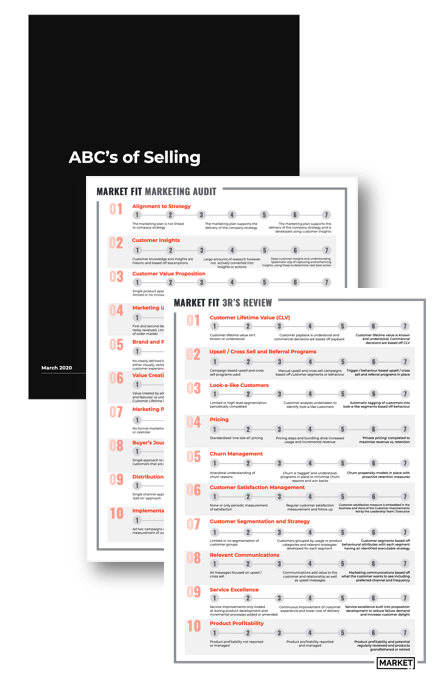If it seems all of five minutes since I last covered Millennials then I am surely in good company. The subject seems to be a weekly heartbeat for a number of commentators – most of whose pieces look like this:
- Millennials are flighty
- Surround them with toys to keep them interested
- Don’t be surprised when they leave you anyway. Millennials are flighty.
Publication of a recent Gallup survey into the workplace has driven me back to the subject. It’s a fascinating read, and I’m not sure fully supportive of common Millennial assumptions. Millennials are the biggest cohort in the workplace. If we’re serious about better staff environments then it may be time to get beyond some those common (and lazy) assumptions.
BUT! As we all know any Millennial article worth its salt needs a list… let’s not buck too many trends today.
1, Are Millennials really flighty?
Surprise number one. Completely contrary to popular perception Gallup found Google-style “fun” office environments were actually more attractive to baby boomers than Millennials. Even worse? Gallup’s chairman and chief exec Jim Clifton actually reckons Millennials find toys and entitlements condescending.
2, Do they really not care about the money?
Next up : the pay check. How important is that? I don’t think it’s right to assume Millennials don’t care about the cash. According to the study it’s true money isn’t everything, largely due to the erosion between private and professional lives for the Millennial generation. However money still rates – it’s just that Millennials equally value a sense of purpose in their jobs. Millennials cherish and seek meaning in both life and career.
And, back to that “flighty” bit? Alongside cash and purpose, opportunities for development and career advancement are part and parcel of how they rate their jobs – and have a strong influence on whether they’ll be sticking around or not.
3, But still… aren’t they at least a little flighty?
Millennials may move from job to job more freely than older counterparts, but it’s not flightiness. What they’re looking for is personal and career development. The Gallup figures show just how badly workplaces are doing in that. Which of course then becomes a self-fulfilling prophecy, taking us straight to the world of the liquid workforce.
4, OK. I get they’re NOT flighty. But surely they are still more likely to switch jobs?
Here’s what the stats say. When you read these, bear in mind millennials currently make up the majority of the workforce. That means most of your employees were probably born after 1980. How true do you think these stats ring for your staff?
- 60% are open to new job opportunities
- 36% will actively seek new jobs if the job market is strong
- 55% report a lack of engagement in their jobs
And, before you get back to “flighty”… Gallup doesn’t see this as a lack of dedication. On the contrary, what millennials are looking for is opportunities. Do you think your business is giving them compelling reasons to stay?
5. So what exactly do millennials want from their employers?
In short, Millennials want:
- Learning and growth opportunities
- Management excellence
- Direct superiors whom they can respect and learn from
- Interesting work
- Opportunities for career advancement
Gallup also found millennials felt much more strongly about these career ingredients than older counterparts, which (of course) could be you!
What does this mean for your business?
“Employee engagement” is the term on everybody’s lips these days. Engaged employees boost the bottom line, improve productivity, reduce absenteeism and improve talent retention.
Achieving engagement is just like marketing – the logic is pretty straightforward. It’s selling to someone’s existing worldview, knowing what they want and showing them how you meet those needs.
One way might be through apps. We’ve looked into the philosophy of marketing to millennials several times in the past, where authenticity and access are more important than ownership. With this in mind, Millennial employees might be perfectly happy leaving the office behind to work via mobile. We’ve already seen this generation’s romance with digitisation and mobility. Working on the go with smartphones echoes the preferred modus operandi outside the workplace – if you can get past the assumption it’s all about the talk, productivity improving apps might be a real player in engaging Millennials.
Takeaways:
And finally, a list from the list…
- Millennials want to develop in the workplace. That means that mentoring and coaching should be ongoing.
- They want interesting, meaningful work. A job doesn’t just go 9-5, these guys actually believe in 24/7.
- They expect a lot from you as a business owner or manager. If they can’t respect the way you work, and learn from you, they’ll move on. Strive for true management excellence.
- Mentor and coach more than you manage. By equipping Millennials with the skills to do their jobs and providing guidance along the way, you’re far more likely to retain your staff than if you adopt a “traditional” management style.
- Just learning a job and doing it isn’t enough for them. Millennials want to learn and keep on learning. You have to keep ahead of them. If they can’t learn from you any more, provide alternatives, or they’ll head off in search of new insights and knowledge elsewhere.
- Millennials manage their careers the way you manage your business. They want growth and advancement. Can you blame them? Career planning with management can show them whether your company has what it takes to fulfil their ambitions. They’re not expecting anything to come without effort, but they do want to see effort being rewarded with opportunities.
- Get tech-savvy. This is a tech savvy generation, and they expect technology to boost workplace freedom and mobility. If you don’t have the answers, put your Millennials to work on it. You may be surprised at the solutions they come up with.
- Be real. Broken promises and empty words aren’t going to cut the mustard.
- Build in flexibility wherever possible. Can they e-commute? If you don’t actually need them under your eyes at the office, allow them the choice.
- Consider outsourcing to Millennials. Freelancing is proving to be very popular with this generation.
- Flatten your organisational structure. Your business will be more responsive, and you’ll build the management relationships Millennials seek far more successfully.
KS




